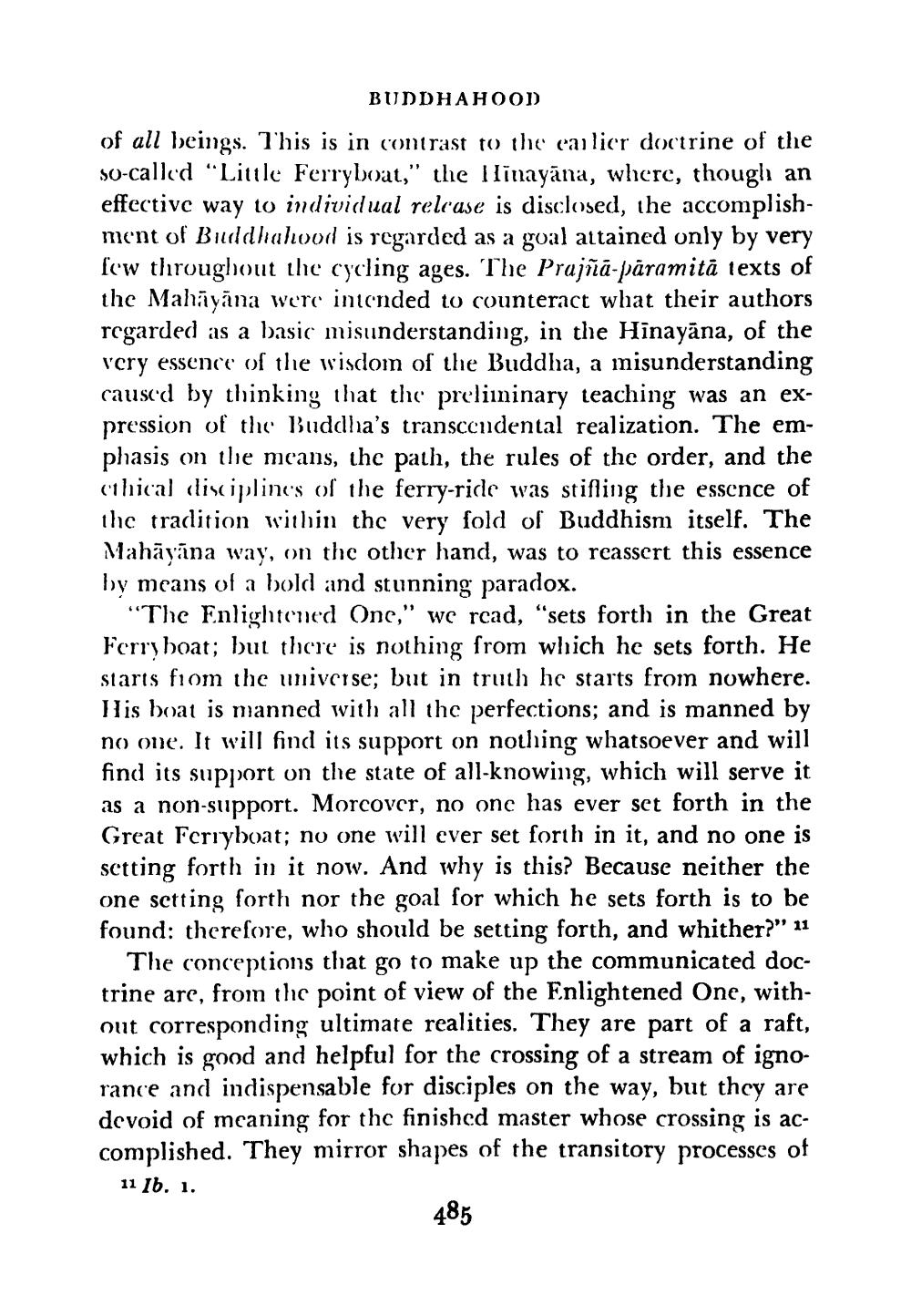________________
BUDDHAHOOD)
of all beings. This is in contrast to the cailier doctrine of the so-called "Little Ferryboat," the Tlinayāna, where, though an effective way to individual release is disclosed, the accomplishment of Buddhahvod is regarded as a goal attained only by very few throughout the cycling ages. The Prajñā-pāramitā texts of the Mahāyāna were intended to counteract what their authors regarded as a basic misunderstanding, in the Hinayāna, of the very essence of the wisdom of the Buddha, a misunderstanding caused by thinking that the preliininary teaching was an expression of the Buddha's transcendental realization. The emphasis on the means, the path, the rules of the order, and the (thical disciplines of the ferry-ride was stifling the essence of the tradition within the very fold of Buddhism itself. The Mahāyāna way, on the other hand, was to reassert this essence by means of a bold and stunning paradox.
"The Enlightened One," we read, "sets forth in the Great Ferryboat; but there is nothing from which he sets forth. He starts from the universe; but in truth he starts from nowhere. His boat is manned with all the perfections; and is manned by no one. It will find its support on nothing whatsoever and will find its support on the state of all-knowing, which will serve it as a non-support. Morcover, no one has ever set forth in the Great Fcrryboat; no one will ever set forth in it, and no one is setting forth in it now. And why is this? Because neither the one setting forth nor the goal for which he sets forth is to be found: therefore, who should be setting forth, and whither?" 11
The conceptions that go to make up the communicated doctrine are, from the point of view of the Enlightened One, without corresponding ultimate realities. They are part of a raft, which is good and helpful for the crossing of a stream of ignorance and indispensable for disciples on the way, but they are devoid of meaning for the finished master whose crossing is accomplished. They mirror shapes of the transitory processes of 11 Ib. 1.
485




